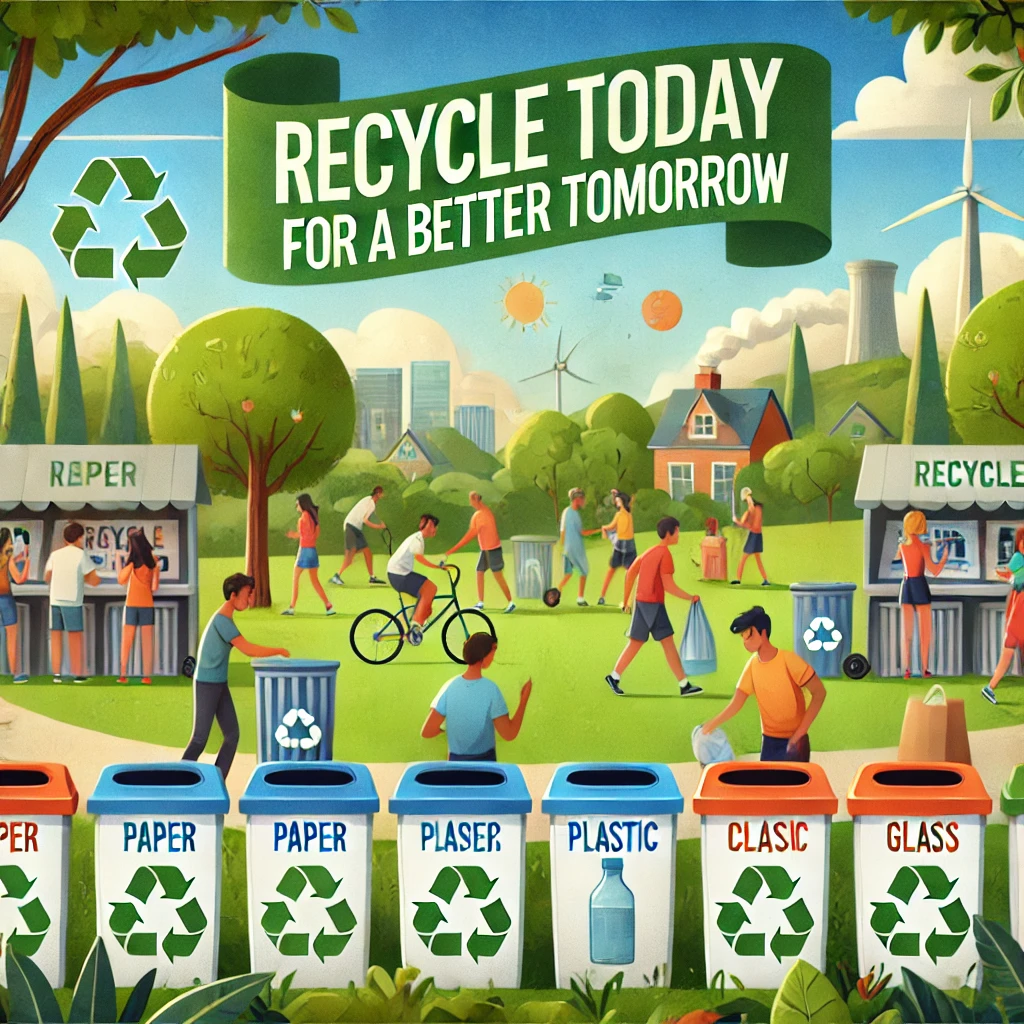Why Recycling is Important: A Key to Sustainable Living
In today’s world, environmental conservation has become a key focus, and one of the most effective ways to reduce our impact on the planet is through recycling. Recycling involves the process of converting waste materials into new products, helping to reduce the need for raw resources, minimize energy consumption, and lower pollution levels. But why exactly is recycling so important? Let’s take a closer look at the environmental, economic, and social benefits it offers.
1. Reduces Waste in Landfills
Every day, tons of waste are generated, and a significant portion ends up in landfills. Recycling helps to divert materials such as paper, plastics, metals, and glass from landfills, reducing the need for landfill space. This not only conserves space but also reduces the environmental hazards caused by landfill overflow, such as the release of harmful chemicals and methane gases.
2. Conserves Natural Resources
Recycling reduces the need for extracting raw materials from the Earth. For instance, recycling aluminum saves 95% of the energy required to make new aluminum from bauxite. Similarly, paper recycling saves trees, conserving forests and helping to maintain biodiversity. By reducing the demand for new resources, recycling helps preserve natural habitats and reduces the strain on ecosystems.
3. Saves Energy and Reduces Greenhouse Gas Emissions
Recycling often requires less energy than creating products from raw materials. For example, recycling metals and plastics uses much less energy compared to the mining, refining, and manufacturing processes of new materials. This reduction in energy use helps to decrease the emission of greenhouse gases, contributing to the fight against climate change.
4. Economic Benefits
Recycling is not only beneficial to the environment but also to the economy. It creates jobs in the collection, sorting, and processing of recyclables. The recycling industry has become a significant part of many local economies, providing employment opportunities and supporting businesses that rely on recycled materials for production.
5. Promotes Sustainable Development
Recycling plays a pivotal role in promoting sustainable development by helping reduce consumption and waste. It supports a circular economy, where materials are reused, and products are designed for longevity, reducing the need for constant production and disposal. This creates a more sustainable system where resources are used efficiently, benefiting both current and future generations.
6. Encourages Environmental Responsibility
By recycling, individuals and communities can take active steps in reducing their carbon footprint. It fosters a sense of environmental responsibility, inspiring people to make conscious decisions about waste management and sustainable living. When more people recycle, it sets a positive example for others, creating a collective impact on environmental conservation.
Conclusion
Recycling is an easy yet powerful way to make a positive difference in the world. It helps conserve natural resources, reduces pollution, saves energy, and creates jobs, all while contributing to a healthier planet. By embracing recycling as part of our everyday routine, we are taking steps toward a more sustainable and eco-friendly future for generations to come.
Start Recycling Today for a Better Tomorrow!

